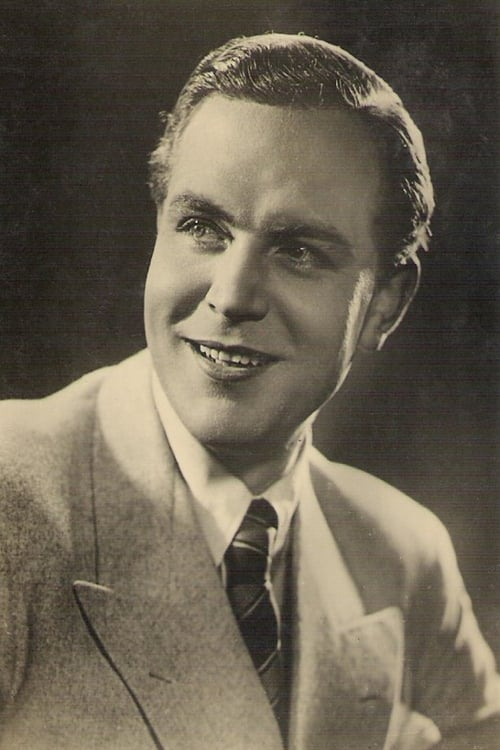Gustav Fröhlich
Nacimiento : 1902-03-21, Hannover, Germany
Muerte : 1987-12-22
Historia
From Wikipedia, the free encyclopedia
Gustav Fröhlich (21 March 1902 – 22 December 1987) was a German actor and film director. He landed secondary roles in a number of films and plays before landing his breakthrough role of Freder Fredersen in Fritz Lang's 1927 film Metropolis. He remained a popular film star in Germany until the 1950s.

Freder Fredersen
In 1984, Academy Award winning composer Giorgio Moroder introduced Fritz Lang’s science fiction epic Metropolis to a new generation of filmgoers. Working in collaboration with film archivists globally, Moroder supervised a special reconstruction, with color tinting, fewer intertitles and newly restored footage. A pioneer in the field of digital music, Moroder backed this special edition with a throbbing new score, punctuated with pop songs from some of the biggest stars of the early MTV era: Freddie Mercury, Pat Benatar, Adam Ant, Bonnie Tyler, Loverboy and others.

Dr. Lebrecht

Dr.Georg Sudeny, ihr Gatte

Paul Frank

Director

Percy Buck
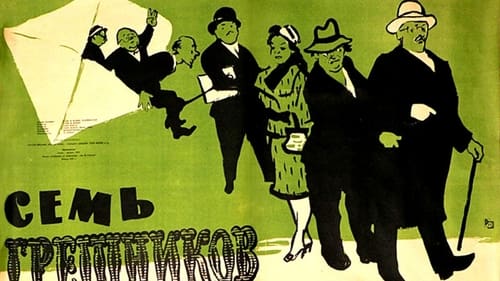
Peter Bruck
In a small town a bag with delicate letters disappears. Many of the residents are worried about their written messages. A clever sculptor uses the opportunity to play a prank.
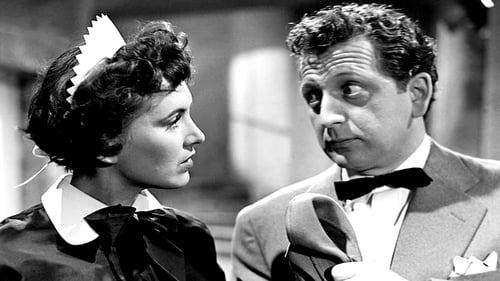
Julien de Costa

Jonny Pitter

Pedro

Dr. Peter Haidt

Toni Sponer
Taking place over 12 hours on New Years Eve, a concert pianist murders his wife's lover, then frames an innocent man.

Erich Holsten

Director

Dr. Klaus Michael Dirkhoff, genannt Stips
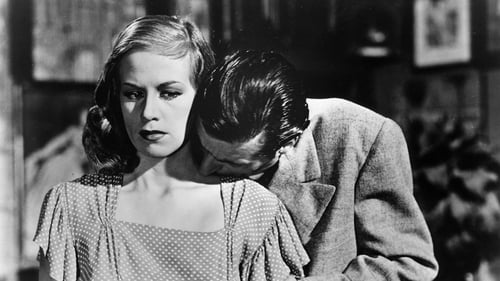
Alexander
It is a love story between a prostitute and an artist. It was one of the first German films to break several taboos: nudity, suicide and euthanasia. In the Germany of the '50s, this caused a lot of negative reactions by the politicians and the Roman Catholic Church. The opposition reached the degree of banning the film and scandalizing it which paradoxically made it one of the landmarks in the history of film.

Director

Dr. Wilhelm Löhnefink

Cerberus, der Tausendsassa

Director

Dr. Paul Schröter

Bernd Falkenhagen

Dr. Thomas Martin

Otto Lukas
Three homeless youths commit petty crimes to get by in the difficult time just after the end of WW2 in Germany. When they become suspects in a murder case, a witness of the events comes forward with evidence that they are innocent of the crime. He offers them a chance to break with their ways and make a new beginning in his village, not knowing what this will ultimately cost him.

Director
Three homeless youths commit petty crimes to get by in the difficult time just after the end of WW2 in Germany. When they become suspects in a murder case, a witness of the events comes forward with evidence that they are innocent of the crime. He offers them a chance to break with their ways and make a new beginning in his village, not knowing what this will ultimately cost him.

Peter Hellmer

Director

Dr.Jura
A concert pianist, the romantic idol of many women, is seduced away from his wife. The seductress's husband takes in the pianist's wife, and all four pretend to be happy with the new arrangement.

Westhoff
The moral is simple: keep your mouth shut, especially when you're working during the wartime in a factory, which produces racing cars only, or someone can (or even must) get murdered. Not a good movie, not a bad either. The ending is abrupt and artificial, which seems to be a common plague of Third Reich's crime movies. Gustav Fröhlich could never get rid of his silent era mannerisms and overacting. But on the other side, this film is not boring and has to offer some decent plot turns and acting.

Frauenarzt Dr. Franz Wrenzchen

Frauenarzt Dr. Franz Wrenzchen

Peter

Paul von Detky
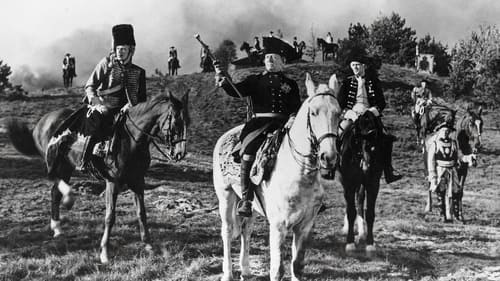
Sgt. Treskow
King Frederick II (aka "Frederick the Great") of Prussia is engaged in a major battle against the Austrian army at Kunersdorf, and things aren't going well. The Austrians are inflicting major casualties, and his army is beginning to crumble. Defeat seems inevitable when a combination of events gives him hope that he may pull victory from the jaws of defeat after all.

Unteroffizier Werner Holt

Lutz Bornhoff

Fritz Ullmann

Thomas Ostenhoff

Peter Graf von Asfeld

Der Privatsekretär

Franz Mansfield

Arne Kolk, Zollwachtmeister

Kurt Kielmansdorf

Jan Jenssen, Steuermann

Markus

Prinz Louis Alexander alias Dr. Alexander Bordam

Gast
German all-star musical from 1938 that was a big commercial success.

Der Ingenieur
Gabriele Bordersen, a woman from a good home, wants to see what real life is like among the common folk. With her stewardess Fanny Flint and the tour guide Simikry, she goes off to visit a sailors' bar. Fanny and Gabriele change clothes, which allows the stewardess to introduce herself as a fine lady. When Gabriele asks Fanny to leave with her, Fanny begs her to give her an hour more out of fear of embarrassment. Gabriele, however, is thrown out of the bar by the owner without money and papers; is picked up by the cops; and suffers a nervous breakdown, leading to her being sent to a hospital. No one believes in the slightest that she's really Gabriele Brodersen.

Oberleutnant Brock
Set against the backdrop of the 1900 Boxer Rebellion...

Hans Scheffler - U-Bahn-Beamter
Dark love story.

Jacques Gregor

Rechtsanwalt Dr. Leuttern

Severin Matthias
The bored heir to a soap factory is able through pure chance to work incognito in the 153rd branch of the business. While doing so, he falls in love with a beautiful customer, gets into a rivalry with a jealous worker and helps to expose a dishonest boss.

Ingenieur Wiegand

Gerard Frehel

Peter von Ronan
To escape dreary country life, a count travels to Italy with a friend every year. Instead of the alleged purchase of horses, the reason he gives to his mother as to why he needs to travel to Italy, he spends his time chasing after the ladies.

Hermann v. Goren
Baron von Goret is an impoverished landowner, whose estate is about to go into receivership. And so, for that reason, he wishes to marry off his son Hermann with his well-off girlfriend Helga. But Hermann is in love with the farmer’s daughter Dorothea. He leaves his father’s estate with her and makes his way to Berlin to make a name for himself. He’s not successful in this and, so as not to stand in his way, Dorothea leaves him. Hermann’s aunt brings him back to his father’s estate, where, depressed over losing Dorothea, works tirelessly to clear the estate of all its debts.

Leutnant Bobby Tompson

Sándor Teleki

Frank Cornelius
Nacht der Verwandlung (A Night of Change) stars Gustav Froelich as a globe-circling aviator, a character clearly based on America's Wiley Post. While basking in his celebrity at a nighttime carnival, Froelich romances Rose Stradner, the unhappy wife of brutish Heinrich George. When George refuses to give Stradner her freedom, she takes it anyway, but her fling with Froelich is doomed to disappointment. Our hero learns the hard way that one can be in a teeming crowd, yet still be all alone. Leading lady Stradner later resettled in Hollywood, where she appeared in such films as The Last Gangster and Keys to the Kingdom.
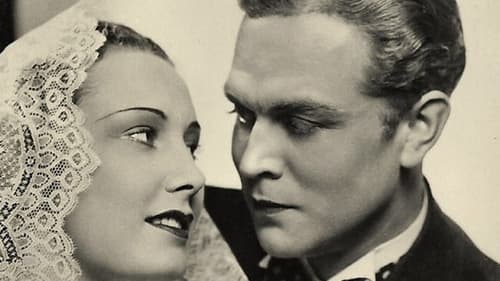
Eugen Colloredo
A young reckless womaniser is trapped one night at his club into a bet with a Mexican that he will win his wife before morning. There will be a duel in any case: if he loses his bet the Mexican will fire first.

Oberwachtmeister Willi Schwenke

Leutnant von Keller

Director


Michael Nissen
Werner Dux, heir of the big car company "Dux-Werke", is a gambler who has just been arrested in Chicago for shooting a cardsharper. While in jail, he learns from his friend Michael Nissen that his father has died recently. That means that the Dux-Werke are without a leader at the moment, for Werner's cousin Steffie, who is his co-heiress, is still too young to run the firm. In this situation, Werner convinces his friend Michael, who is an engineer by profession, to take over the firm as long as he is in jail and to pose as him. Michael agrees and is able to bring the firm up again. He even arranges a reliability test for motorcycles via Istanbul, Rome and Barcelona, which creates a big Turkish order for the company. When the real Werner escapes from jail and arrives in Germany, it looks as if the whole story is up to bust. But Werner needs money, so he convinces Michael to go on as before and hand over all profits of the firm to him.

Oberleutnant Tarjan

Director

Léon Saval
In this French set comedy, five million francs change hands one weekend between a man pretending to be a millionaire and a woman pretending to be a Russian countess.

Hans
Hans, living in Vienna during the Great Depression, intends to drown himself in the river after losing his livelihood. While there he meets a girl named Anna after pulling her from the river.

Holger Rhon
The story, set in Constantinople, of a young man who falls in love with a woman much older than he is, and her daughter falls in love with him also. An American critic was vastly impressed by the day-and-night locale shots, and wrote that the film-maker had discarded and soft-pedaled the soft and sentimental in favor of the realistic and logical.

Walter König
In this pre-WWII German mystery-comedy, a lovely kleptomaniac with a taste for fine jewelry is unable to resist temptation. Strangely, every time she steals something, a mysterious man pays for it. A clumsy detective begins investigating and finds a crucial clue: a strongly scented woman's glove. The perfume is an expensive scent and the detective's pal realizes that it belongs to a popular nightclub singer. The friend quickly becomes enamored of the girl, but then so does her mystery man, a notorious international criminal. Eventually he gets arrested, leaving the detective's pal to move in on the singer.

Paul Ritter
A story about a series of confusions, in which Paul Ritter, a bank employee, is unaware that the girl he's fallen in love with is the daughter of his boss. No one bothers to tell him and he gets jealous of the boss, who seems to have a very good relationship with the girl.

Robert Lindt, eigentlich Graf Lerchenau

Peter Franke
Peter Franke owns Supraphon record company, which has one main competitor in Lyraphon. As a commercial strategy Peter gets engaged to her counter partner Asta, to his assistant Münzer's approval. Then he meets Wally Sommer, singing saleswoman at one of his shops, and all his plans are turned upside down while they both fall in love in this light musical comedy filled with Robert Stolz music.

Peter, Komponist

Werner Loring jr. - stellvertr. Direktor der Ideal Tonfilm
The story follows a movie crew who is filming a musical in a small and idyllic alpine village. After their temperamental leading lady drops out of the film, they decide to replace her with the village's young post office clerk Gretl, who returns to Berlin with them. There she has to struggle with the movie's all-male crew, who all try to woo and win her.

Hauptmann Herbert Frank

Rudolf Starke

Leutnant von Lorenz

Johann Strauß - der Sohn

Georg Köhler
This is the German version of Gloria with Gustav Fröhlich & Brigitte Helm in the leads. A French version was filmed simultaneously with André Luguet & Brigitte Helm in the leads.

Hajj, a rascally beggar on the periphery of the court of Baghdad, schemes to marry his daughter to royalty and to win the heart of the queen of the castle himself. This is a German-language version made in Hollywood along side the 1930 production directed by John Francis Dillon.

Self
A German reporter visits Hollywood and is escorted through the MGM Studio by a German nobleman, who is working there as an extra. They meet and speak to several actors, primarily Buster Keaton, John Gilbert, Joan Crawford and Heinrich George. Then they meet Adolphe Menjou, who rehearses a long scene in German. A final scene shows stars arriving at a film premiere, including Jean Harlow, Norma Shearer and Wallace Beery.

Walter Taylor
This is the German-language version of 1929's "The Sacred Flame", from the W. Somerset Maugham play, shot by Warner Bros. in Hollywood with a German-speaking cast.

Fritz Bernt, Student
When a prostitute is murdered in a cheap Berlin boarding house, an investigating judge suspects that the killer is her boyfriend, unaware that his own son and daughter are also mixed up in the case.

Gustav Froehlich and Charlotte Susa play Rochus and Judith, the zwei menschen (two humans) of the title. Rochus' domineering mother insists that he enter the priesthood, but he is reluctant to break up his blissful romance with the fair Judith. A religious fanatic of the first order, the mother swears before God and her Church that Rochus will indeed take his vows. When this does not come about, she dies of grief, whereupon the guilt-stricken Rochus abandons Judith to become a priest. The girl subsequently commits suicide -- and it is Rochus who must officiate over her body during the funeral. This final scene was excised from the print of Zwei Menschen released in New York, leaving audiences hanging in regard to Judith's ultimate fate.

Richard Faber
It begins with a Tannhäuser performance and ends with the premiere of The Tales of Hoffmann. In between a young ingénue cast in her first big role, the Hoffmann rehearsals, the theatre director and his stage director exchanging cynicisms, a budding love affair. Gründgens at his most repulsive, trying to woo both lovers. And a hair-raising finale. Add to this some snappy dialogue and "pre-code" scenes that make you sit up and stare.

Hans Ritter
Prevented from wedding a postman's daughter (her father prefers she marry a farmer) a Tyrol schoolteacher succeeds instead in having an opera of his acceptance in Vienna. But this isn't the happiness he wanted, he becomes a hobo.

Wassil Gurmai
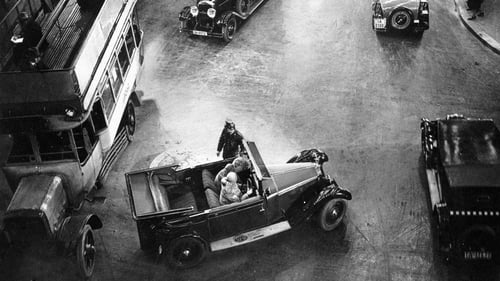
Wachtmeister Albert Holk
Una mujer bien vestida (Betty Amann) roba una piedra preciosa de una joyería de Berlín. Ella intenta seducir al policía (Gustav Frölich) que la captura, y él sucumbirá gradualmente a sus encantos.

Georg Wittig

Hendrik Hansen
Pieter Kruis runs a grocer's shop in a small Dutch town, with which he and his wife Johanne can hardly feed themselves. Nonetheless, he is satisfied with his life, although he suspects that he will probably never win the jackpot. Suddenly Pieter receives a telegram from America: his old school friend Joe, who has made a fortune in the “new world”, asks whether Pieter would like to visit him. As “compensation” for expenses incurred, Pieter will also receive $ 50,000! Of course, Pieter doesn't hesitate for long - the suitcase is quickly packed and a ship ticket reserved. But the little “world traveler” has no idea what kind of adventures await him! Fearing that his insidious brother might speculate on his life insurance and stage a small “accident” on board the ship, Pieter disembarked in Rotterdam, where his entire travel budget was by a few crooks. Then he learns that his ship has actually sunk and suspects that his brother is already worried about the sum insured...
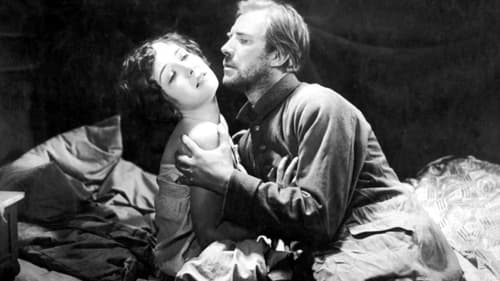
Karl
Following World War I, after a long imprisonment, two German prisoner-of-war soldiers escape from a Siberian lead-mine. Karl manages to reach Germany before Richard, and is sheltered by Anna, wife of Richard. While Richard is still on his homeward trek, Karl and Anna fall in love. And then Richard comes home.

Francard
"The Fear of an Unfaithful Woman" - Inge Duhan lives with her husband, the lawyer Erich Duhan, and her little daughter Susi in Berlin. Inge is a very attractive woman. She loves her husband and has always been faithful to him. On a holiday trip to the French Riviera Inge meet the charming painter Francard. A brief affair begins that turns into blackmail.

Gerhard

Martin Frey

Gustav Brenner
An ill-fated love affair between a brothel waitress and a doctor's son.

Tommy, der Mittelstürmer
Die elf Teufel / The Eleven Devils was made in Berlin in the summer of 1927, in the last throes of the silent movie era. But Die elf Teufel strikes one today as a prophetic film. One of its early captions is "Football, the sport of the century ". We are shown a ball bathed in light like some sacred relic, and observe how, even in those early days, fans on the terraces wouldn't shy away from using their fists.

Walter von Stolzing

Alexander Radny
The aging singer Clarina receives a new engagement from a cabaret called the Maison Mouche and must evade the advances of several overbearing men. This film is considered lost.

Armand Noret
El saltamontes festea y sestea durante el verano, mientras las hormigas trabajan diligentemente en ese tiempo ahorrando para la estación fría. ¿Qué sucederá con el saltamontes cuando llegue el invierno?

Freder Fredersen
En una megalópolis del año 2000, los obreros están condenados a vivir recluidos en un gueto subterráneo, donde se encuentra el corazón industrial de la ciudad. Sin embargo, incitados por un robot, se rebelan contra la clase dominante y amenazan con destruir la ciudad exterior. Freder (Gustav Frölich), el hijo del soberano de Metrópolis, y María, una muchacha de origen humilde, intentarán evitar la destrucción apelando a los sentimientos y al amor.

Edgar Jefferson

Harry Petersen

Jörg Larsen Fischer

Franz Von Liszt
Historical film about Italian musician Niccolo Paganini.

James Compson
A young woman doesn't want to get married, but simply live together with the man she loves. This leads to problems when the man dies and she's left with a child.
